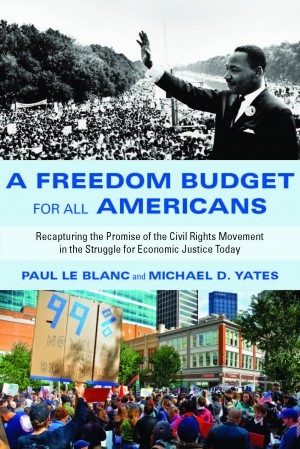economics
Lessons of the Australian Prices and Incomes Accord

Former ACTU heads Bill Kelty (left) and Simon Crean (right), and former Labor PM Bob Hawke attend the Prices and Income Accord 30-year anniversary. Photo by Renee Nowytarger. Source: The Australian.
June 1, 2013 -- Links International Journal of Socialist Renewal --The 30th anniversary of the Prices and Incomes Accord, signed by the Australian Labor Party federal government and the Australian Council of Trade Unions, has just been celebrated by the former employers, union officials and ALP politicians of the period. At the time, and again today, this class-collaborationist "social contract" was lauded as a tremendous step forward for workers and "the economy". The reality for Australian workers was the opposite and the lessons should never be forgotten.
Below is a talk presented to the political school of the South African Municipal Workers Union -- in Durban in 2001 -- by Norm Dixon, at the time editor of Green Left Weekly and a national executive member of the Democratic Socialist Perspective (since merged into the Socialist Alliance). It is excerpted from the SAMWU Political Education Book, 2002-03.
Building socialism for the 21st century: interview with Michael A. Lebowitz

[For more articles by or about Michael Lebowitz, click HERE.]
Michael A. Lebowitz interviewed by Darko Vesić and Aleksandar Stojanović
May 7, 2013 -- Left East,suggested to Links International Journal of Socialist Renewal by Michael Lebowitz.
Darko Vesić and Aleksandar Stojanović: Capitalism has been in crisis for several years now and in response to this crisis the capitalist states practice so-called austerity measures. If we look at the historical dynamics of capitalism in the last half century, we see that they responded to the crisis of the 1970s with what is now called “neoliberalism”. If the restoration of growth is what must be carried out as a response to the crisis, we can say that neoliberalism of the 1970s was successful. Yet, can we say same of present-day “austerity measures”?
What to do about the debt and the euro? A manifesto
Yet, these policies are rational from the point of view of the bourgeoisie. They are a brutal way -- a shock therapy -- for restoring the profits, for guaranteeing the financial rents and for implementing the neoliberal counter-reforms. What is going on is fundamentally the validation by the states of the financial claims on future production and GDP. That is why the crisis takes the form of a sovereign debt crisis.
Michael Lebowitz: Primitive accumulation versus contested reproduction (video)
[For more articles by or about Michael Lebowitz, click HERE.]
By Michael A. Lebowitz, Ljubljana
May 4, 2013 -- Links International Journal of Socialist Renewal -- If we don't understand a system as it is fully developed [its "being"] and thus its critical characteristics, we cannot investigate the "becoming" of those characteristics.
This is why Marx discussed primitive (or original) accumulation of capital only at the end of volume 1 of Capital. Exclusive focus upon the emergence of the new elements, however, is not real history. "Becoming" is two sided: it is both a coming into being and a passing away. The concept of primitive accumulation explores only the former; it considers the new being born but not the old struggling to remain alive. It is, in short, one-sided. Not only does it fail to explore on its own the struggle of the old for its reproduction but it also does not consider the interaction, the morbid symptoms and dysfunction when two sets of productive relations are engaged in contested reproduction with respect to their control of the elements of production.
Michael Lebowitz: Working-class response to devaluation measures in Venezuela

By Michael A. Lebowitz
Africa’s ‘rising’ or overdue uprising?

By Patrick Bond
January 1, 2013 – Links International Journal of Socialist Renewal
Either:
1) Africa owes its takeoff to a variety of accelerators, nearly all of them external and occurring in the past 10 years:
- billions of dollars in aid, especially to fight HIV/AIDS and malaria;
- tens of billions of dollars in foreign-debt cancellations;
- a concurrent interest in Africa’s natural resources, led by China; and
- the rapid spread of mobile phones, from a few million in 2000 to more than 750 million today.
Business increasingly dominates foreign interest in Africa. Investment first outpaced aid in 2006 and now doubles it.
Or:
US economy: A major attack on labour rights

President Barack Obama bragged how he had saved the US auto industry by handing out billions in taxpayers’ money to the auto bosses, and even establishing what amounted to temporary federal ownership of the old General Motors plants when GM went bankrupt during the “Great Recession”.
By Sam Williams
December 23, 2012 -- A Critique of Crisis Theory, posted at Links International Journal of Socialist Journal with permission -- December 11, 2012, brought news of a major new attack on basic labour rights in the United States. The following day, the Federal Reserve [the US central bank] announced new inflationary measures designed to end the economic stagnation the US economy has been mired in since the “Great Recession” bottomed out in July 2009.



